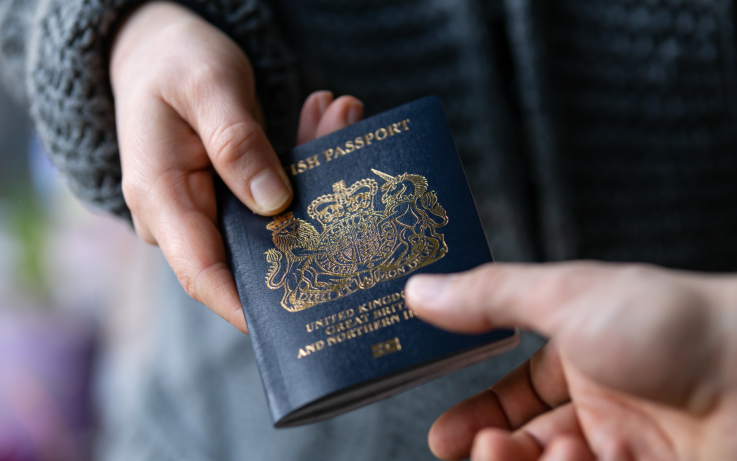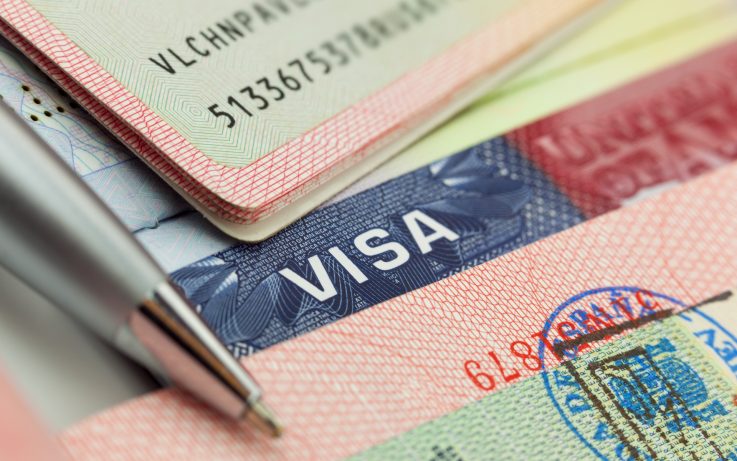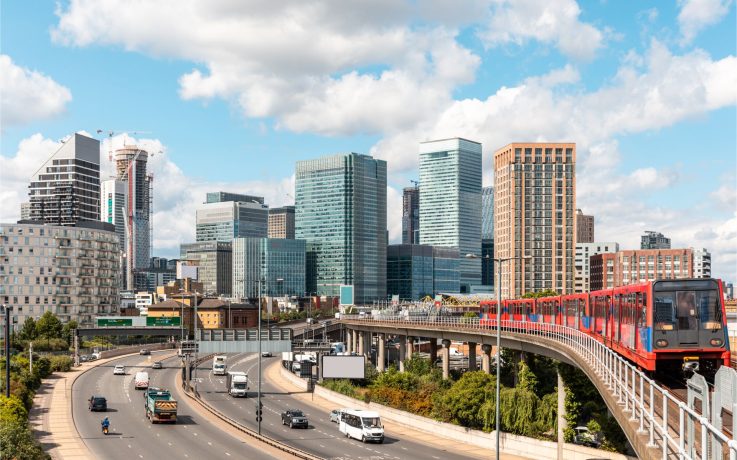Purchasing property in various UK regions

Why do people choose to invest in UK properties? The geopolitical situation in the United Kingdom allows for reliable and profitable long-term investments and the purchase of properties for personal use. The UK’s economy keeps growing. While other countries suffer from crises, the UK has been demonstrating stable economic growth for decades.
UK Property market
A square meter, or a foot, of property in the UK is one of the most expensive in the world. Such popularity can be attributed to the stability and reliability of the real estate market across the nine English regions and 48 counties. Here are a few examples of the most attractive investment areas in the UK:
- Amersham;
- Windsor;
- Hampstead;
- Surrey;
- Devonshire;
- Cornwall;
- Buckinghamshire;
- Oxfordshire;
- Berkshire etc.
Each location has its advantages and suits a particular purpose. London property is the most prestigious and expensive in the UK. However, even in the UK capital, you can find real estate at any price: from the expensive Hampstead, St John’s Wood, Wimbledon, and Holland Park properties to cheaper options in Islington and Haringey. All areas offer a clean environment and good living conditions.
In terms of comfort, Surrey, Hampshire, and Cornwall are at the top of the list: the Southern counties are the most prosperous and famous for their picturesque landscapes. They are perfect for recreation.
One should not forget that the UK has a centuries-long history. Its heritage, such as castles and mansions, is also often put up for sale for private and commercial use. However, there will be a matching price tag. It usually starts at several dozens of millions.
There is one more profitable investment option – student accommodations. Students from all over the world dream of studying at the University of Cambridge, the University of Oxford, or any other UK university or college that guarantees a brilliant career in the future. It is difficult to get accepted, but for the lucky ones, parents are often ready to buy or rent a UK property.
Location-Price ratio for UK properties
As has already been mentioned above, the Southern counties are considered the most prosperous. That’s why, a square meter there is more pricey than in the Northern regions. The closer a property is to the seaside, the cheaper it is since the climate is harsh in those areas. Despite this, the UK real estate market regularly offers and sells properties in harbours and villages.
According to the Nationwide assessment, the price per square foot in the UK has been annually growing by at least 30% since 2009. The Savills company forecasted the growth in real estate value by 10.9% to 20.5% (depending on the property location) in the period from 2020 to 2024.
Property in London
Real estate in London is the most profitable investment: the British capital offers the most expensive properties and their value is growing at a record high rate compared to other UK regions.
There are nine travel zones in London. Zones 1 and 2 have the most expensive real estate. Properties in Belgravia, Mayfair, Knightsbridge, and Chelsea are the most popular. If you prefer a quiet area without the hassle and bustle of central London and beautiful sights, have a look at the outskirts of London. The infrastructure there is well-developed so in any case, a bus stop or a tube station will be within walking distance.
Types of UK residential property
There are four types of residential property in the UK:
- Apartment – a property in a block of flats where you share walls with neighbours.
- Terraced house – a section of a bigger estate where you share your right and left walls with your neighbours.
- Semi-detached house – a house divided into equal parts for two families.
- Detached House – a house for one family.
Types of ownership
There are two types of ownership in the UK:
- Freehold; you purchase both property and land and are responsible for maintaining them at your own expense.
- Leasehold; you sign a long-term rental agreement that lasts from 1 to 999 years. An annual rent ranges from £100 to £300. When the agreement expires, you will have to renew it to continue using the property, subject to your landlord’s agreement.
Purposes for purchasing UK property
To choose a suitable real estate, you need to decide why you are buying it:
- You plan to either relocate to the UK or spend your holidays here.
- You plan to invest in a UK property and profit from it by:
- renting it out;
- re-selling it after some time. For example, if you buy off-plan, you will be able to benefit from discounts. After the property is complete, its value will grow.
Purchasing UK property
If you want to purchase real estate or a land plot in the UK, you will have to go through several procedures that will take from one to two months:
- Contact a real estate agent and choose an appropriate real estate. Based on your description, a real estate agent can shortlist the most attractive options for you and evaluate their profitability. All you need to do is to view the selected properties and choose the best one.
- Find a conveyancing solicitor who will represent your interests and check your documents and finances. You will have to present the following documents at this stage:
- A valid ID.
- Proof of permanent address (for example, utility bills).
- A bank statement proving that you have enough funds to purchase the chosen real estate.
- Negotiate the deal: price and conditions.
- Prepare all the required documents.
- Exchange contracts. In some cases, you will be asked to make a 10% deposit to secure the property; the seller will keep it if you withdraw from the deal.
- Get an approved package of documents and report from your conveyancing solicitor. The report shall include all potential risks of the deal.
- Approve the report, confirm the deal, and transfer the funds to your solicitor to pay the property price, taxes, and registration fee. Your conveyancing solicitor will complete the deal and make the payment.
- Have all the related taxes paid to the HMRC and the deal registered by your solicitor.
Mortgage in UK
Apart from ample investment opportunities, the UK also offers good mortgage rates. While an average mortgage rate is 3.5%, annual rental income usually amounts to 6.2%. Such a difference allows one to take out a mortgage to purchase a UK property, rent it out, and then cover the expenses with the rental income.
UK banks offer mortgages both to British and foreign citizens. However, a foreign national will be seen as more trustworthy by a British bank if they have obtained a temporary or indefinite leave to remain in the UK.
Here are some general requirements for a UK mortgage:
- Deposit of at least 25% of the property value.
- Mortgage term from 5 to 20 years (under particular circumstances, you will be able to extend it for five more years).
- Lender’s age from 21 to 70.
- Property appraisal.
- Insurance for the whole mortgage term (insurance annual fee is about £300).
UK Property value
There is one peculiarity of the UK real estate market. The value of the apartment is estimated by the number of bedrooms rather than square footage. Apart from bedrooms, an apartment normally has at least one more room separate from or combined with the kitchen – living room or breakfast room. The number of bathrooms is also an important factor.
Rate of price increases
The value of UK properties constantly grows, faster than the experts forecast. For example, in 2016, property prices were forecasted to grow by 4%. They increased by 13.9%. The trend repeats itself every year. Despite the global financial crisis, the UK real estate market demonstrates stable growth. It offers various investment options for any budget.
Property in Scotland
Though Scotland is part of the UK, life there is different from other UK countries. The country is famous for its picturesque landscapes: mountains, lakes, and forests. Among these wonders of nature, you can find centuries-old castles with their unique history. They are the main attraction for investors. Additionally, in comparison to other parts of the UK, prices in Scotland are lower. There is a joke that an apartment in London can be exchanged for a castle in Scotland.
Purchasing property to get citizenship
Note that the UK government does not accelerate the naturalisation process for foreign nationals who have UK property. Real estate in the UK might play in your favour when applying for citizenship. However, by itself, it does not entitle you to naturalisation.
UK Property as profitable investment
Investing in a UK property is buying an asset with constantly growing value. You will be able to rent out your UK property and get additional income or use it as your home. Even if you take out a mortgage, the deal will remain profitable.
To make the maximum profit, it is recommended to decide on the purpose beforehand and search for a property based on a particular need. For example, if you want to rent out an apartment for a family, you need to keep in mind that your real estate must be close to educational institutions and shopping malls.
Foreign nationals can also invest in UK properties. The whole process of choosing a UK property and signing a deal could be made easier with legal support. You can also have your property managed for you if you do not plan to relocate to the UK.
FAQ About purchasing UK Property
Are there any tax exemptions if I purchase my first property in the UK?
The rate of the main tax on UK property – stamp duty land tax (SDLT) – ranges from 0% to 17% and depends on a number of factors:
- Property price;
- Additional UK property;
- Buyer’s residential status (Indefinite Leave to Remain).
If you are a first-time buyer of UK property, you won’t have to pay SDLT.
Foreign nationals will have to pay 2% on their UK property, unlike settled residents who are exempt from this charge.
For more information about purchasing UK properties, apply for professional legal advice.
Can a foreign national buy a UK property?
Yes, they can. However, experienced advisors recommend purchasing real estate after relocating to the UK and getting an Indefinite Leave to Remain (ILR). They believe it is better to rent a property first to have a feel for the chosen area and understand its advantages and disadvantages. If you do not like the area where you rent, it will be easier to move to a different location.
A rental agreement is usually signed for at least one year. However, it may include a clause whereby you can terminate it in six months.
In all the matters related to UK real estate, it is recommended to apply for legal support. An immigration advisor will help you choose the most appropriate investment option and save you money and time.







